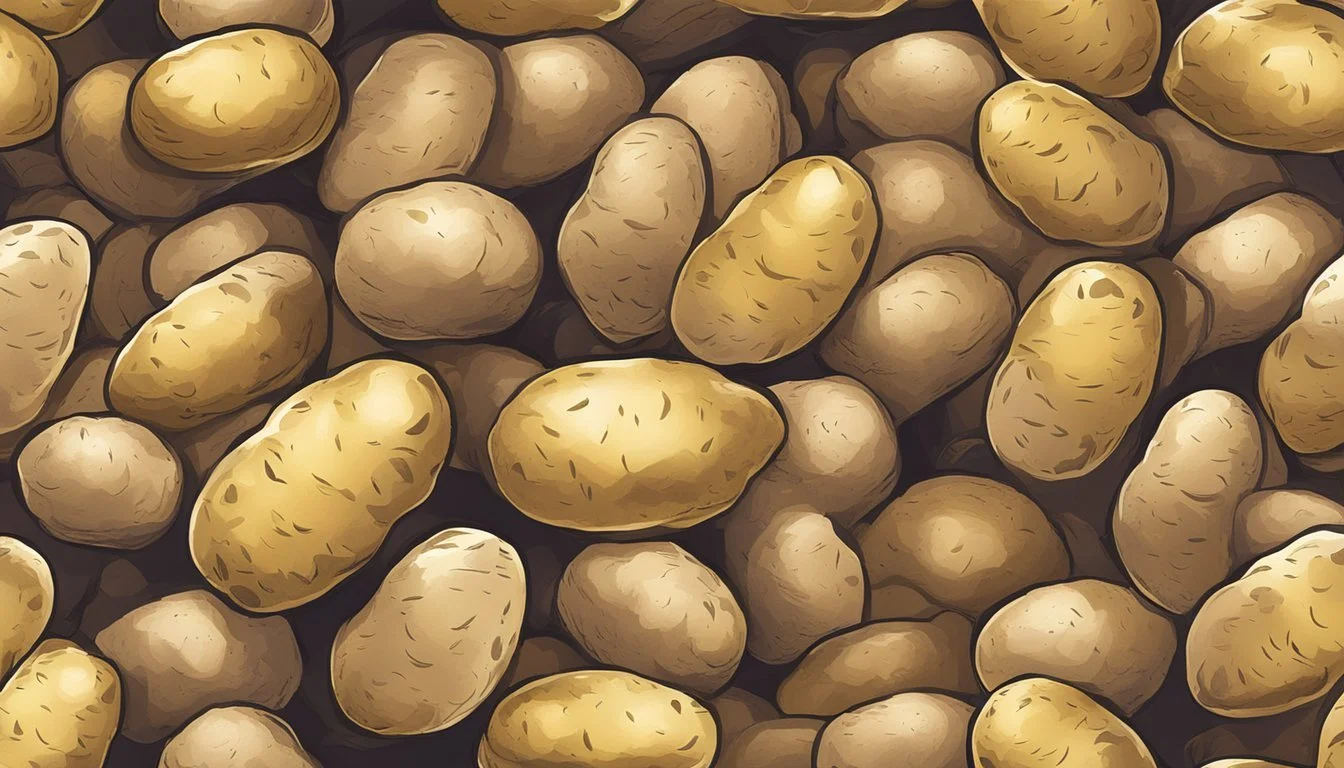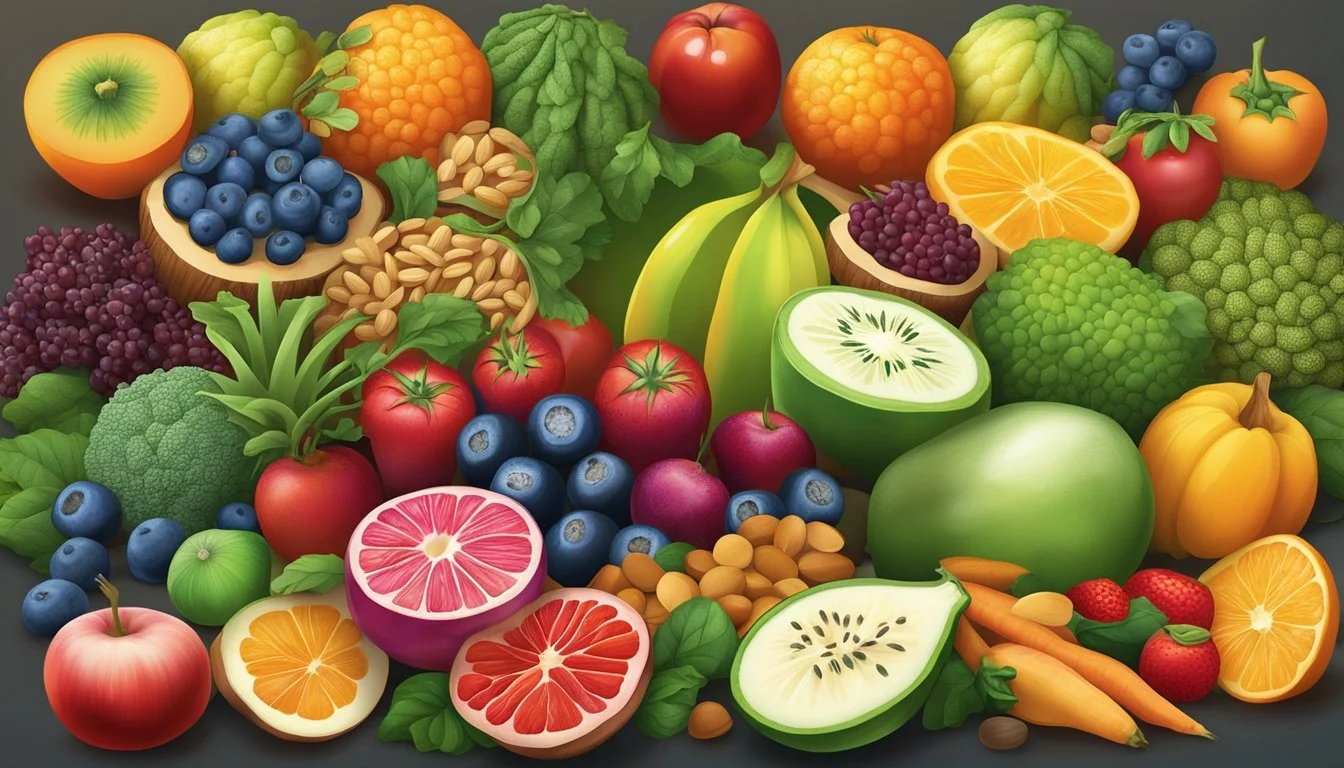Natural Sources of Lithium
Essential Sources and Benefits
Lithium, a naturally occurring element, plays a crucial role in maintaining mental health and overall well-being. As a trace element found in various foods, incorporating lithium-rich foods into the diet can offer a range of health benefits.
Understanding which foods are high in lithium can help individuals optimize their nutritional intake to support mood regulation, cognitive function, and longevity. This article aims to explore the different sources of lithium in everyday foods, providing valuable insights for those looking to improve their dietary habits.
1) Lentils
Lentils are a versatile legume packed with numerous nutrients, making them a great addition to any diet. Among their many benefits, lentils contain one of the highest amounts of lithium found in food.
This mineral plays a crucial role in brain health and mood regulation.
Beyond lithium, lentils are also rich in protein, dietary fiber, and essential vitamins and minerals like potassium, zinc, and manganese. This nutrient profile supports digestive health, stabilizes blood sugar levels, and promotes overall well-being.
Preparing lentils is simple and adaptable to various culinary styles. They can be added to soups, salads, and stews or enjoyed as a standalone dish. This ease of preparation makes lentils an excellent choice for incorporating lithium into your diet naturally.
2) Potatoes
Potatoes are one of the most accessible and versatile foods rich in lithium. They are part of the nightshade family and are well known for their ability to accumulate lithium from the soil.
The lithium content in potatoes can vary depending on the soil they are grown in. Regions with high lithium concentrations in the soil produce potatoes with higher lithium levels.
Potatoes provide an easy way to incorporate lithium into daily diets. They can be prepared in numerous ways, from baking and boiling to frying and mashing, making them a staple in many cuisines.
Their affordable cost and year-round availability add to their appeal. This makes them a reliable source of lithium for various dietary needs.
Including potatoes in regular meals can help maintain adequate lithium intake, which is beneficial for mood regulation and cognitive function. They are a practical choice for those looking to benefit from the trace amounts of lithium.
3) Spinach
Spinach is a nutrient-dense leafy green vegetable that offers various health benefits. One of its lesser-known attributes is its lithium content, which contributes to its healthful profile.
Lithium naturally occurs in many plant-based foods, and spinach is no exception. This mineral is essential for various bodily functions, including maintaining mood stability and supporting neurological health.
The lithium content in spinach might not be as high as in some other foods, but it is still a worthwhile source. Consuming spinach regularly can contribute to the overall intake of this vital mineral.
In addition to lithium, spinach is rich in vitamins, minerals, and antioxidants. These properties make it a valuable addition to any diet, promoting overall well-being while also providing a natural source of lithium.
4) Avocados
Avocados are known for their rich nutrient profile, including a variety of vitamins and healthy fats. These fruits also contain trace amounts of lithium. While not as high in lithium as some other foods, avocados still contribute to dietary intake of this element.
In addition to lithium, avocados are packed with monounsaturated fats, fiber, and important nutrients such as potassium and vitamin K. This combination supports heart health and helps maintain proper bodily functions.
The lithium in avocados complements their nutritional benefits, providing a small but meaningful contribution to overall lithium consumption. Including avocados in the diet can thus help maintain balanced intake of various essential nutrients, including lithium.
Enjoying avocados in salads, smoothies, or on toast is an easy way to reap these benefits. Their versatility makes them a convenient addition to a balanced diet.
5) Cabbage
Cabbage is a leafy green vegetable known for its high nutritional value. Among its many beneficial components is lithium, a trace mineral that plays various roles in human health.
Cabbage contains moderate levels of lithium, making it a valuable addition to a diet aimed at increasing lithium intake. This vegetable can be easily incorporated into meals in both raw and cooked forms.
Cabbage is versatile and can be added to salads, soups, and stews. It not only enhances the flavor but also contributes to the intake of essential minerals, including lithium.
Regular consumption of cabbage may support mood regulation and cognitive function due to its lithium content. This can be particularly beneficial for individuals looking to boost their mental well-being through diet.
In addition to lithium, cabbage is rich in vitamins C and K, fiber, and antioxidants. This makes it a powerhouse for overall health and well-being.
6) Tomatoes
Tomatoes are a significant source of lithium. They are part of the nightshade family, which has shown a marked tolerance to lithium. Studies suggest that these plants can contain up to 1,000 micrograms of lithium per gram.
Besides lithium, tomatoes are rich in several essential nutrients. They provide dietary fiber, antioxidants, and vitamin C. These nutrients contribute to overall health and well-being.
Tomatoes can be consumed in various forms. Fresh, cooked, or as part of sauces, they maintain their nutrient content. This versatility makes them easy to incorporate into different diets.
In addition to their nutritional benefits, tomatoes are easy to grow in home gardens. This accessibility allows more people to benefit from their lithium content.
7) Cauliflower
Cauliflower, a member of the cruciferous vegetable family, is known for its versatility and nutritious profile.
This vegetable contains various essential nutrients such as fiber, vitamins C, K, and choline.
While not commonly cited for its lithium content, cauliflower still contains trace amounts of lithium, contributing to overall dietary intake.
Incorporating cauliflower into meals can offer numerous health benefits, including reduced inflammation and improved gut health.
Its adaptability in recipes makes it a popular option for those on low-carb, ketogenic, and Paleo diets.
8) Peas
Peas, a member of the legume family, offer a notable amount of lithium. They are among the foods that are beneficial for individuals looking to increase their lithium intake through dietary sources.
Fresh peas, as well as dried peas, contribute to the intake of lithium. The exact amount can vary based on factors such as soil composition and plant variety.
Incorporating peas into various dishes can help boost dietary lithium. They are versatile in cooking, making them an easy addition to salads, soups, and main courses.
Peas also provide other essential nutrients. They are rich in proteins, vitamins, and fiber, complementing their lithium content and supporting overall health.
Including peas in the diet can be particularly useful for those looking to naturally maintain or enhance their lithium levels.
9) Radishes
Radishes are root vegetables that belong to the mustard family. They are known for their crunchy texture and peppery flavor. These vegetables are not only a tasty addition to salads and dishes but also packed with various nutrients.
Radishes contain trace amounts of lithium, which can contribute to dietary intake of this element. Lithium in food sources, including radishes, is important for maintaining mental health and neurological function.
Apart from lithium, radishes are rich in vitamin C, which supports the immune system. They also provide essential minerals such as calcium, potassium, and magnesium. These nutrients help support various bodily functions.
Radishes also contain natural nitrates, which can improve blood flow. Their isothiocyanate content has been studied for potential cancer-fighting properties. They can aid in digestion and may assist in maintaining a healthy weight.
Incorporating radishes into your diet can offer multiple health benefits. Including them as part of a balanced diet can help ensure an intake of diverse and essential nutrients, including lithium. Their versatility and nutritional content make them a valuable addition to any diet.
10) Carrots
Carrots, a popular root vegetable, are known for their rich nutrient profile. They are an accessible source of lithium, contributing to the mineral intake when included in a balanced diet.
Carrots contain trace amounts of lithium, which can support mood regulation and overall wellness.
This vegetable is also high in beta carotene, fiber, and vitamins like A, C, and K.
Incorporating carrots into meals, whether raw, cooked, or as juice, can provide modest lithium levels along with other essential nutrients.
Thus, carrots are a simple yet effective way to boost lithium intake naturally through diet.
Their versatility in various dishes makes them a practical choice for anyone looking to benefit from their nutritional value.
Health Benefits of Lithium-Rich Foods
Lithium-rich foods carry a range of health benefits, especially pertaining to mental health, neurological functions, and bone health. Including these foods in your diet can contribute to overall well-being.
Mental Health Support
Lithium is well-known for its mood-stabilizing properties. Consuming lithium-rich foods can help to alleviate symptoms of depression and anxiety.
Studies suggest that trace amounts of lithium can reduce the risk of suicide and promote emotional stability. Legumes, such as lentils and peas, are particularly high in lithium, making them beneficial for mental health.
Grains and vegetables are also significant sources. These foods, integrated into a balanced diet, can offer a natural way to support mood regulation without medication.
Neurological Benefits
Lithium has been found to play a role in enhancing cognitive function and may help in preventing neurodegenerative diseases. Research indicates that diets high in lithium can contribute to improved memory and cognitive performance.
There is some evidence that lithium can support brain health and function, thereby reducing the risk of conditions like dementia and Alzheimer's disease. Foods like beans, grains, and certain vegetables not only provide lithium but also other nutrients that bolster neurological health.
Bone Health
Lithium contributes to bone density and overall skeletal strength. Consuming lithium-rich foods can be beneficial for maintaining strong and healthy bones.
Lithium has been linked to an increase in bone formation and a decrease in bone loss, factors that are crucial for preventing osteoporosis. Foods such as grains and vegetables, which are primary sources of dietary lithium, can help in maintaining bone health.
Mineral water containing lithium is another excellent source, particularly beneficial for supporting bone strength and durability.
How Lithium Improves Brain Function
Lithium interacts with multiple systems in the brain to enhance cognitive processes and stabilize mood. This section outlines key mechanisms such as neurotransmitter regulation and mood stabilization.
Neurotransmitter Regulation
Lithium plays a significant role in modulating neurotransmitters within the brain. It increases the release of serotonin, a neurotransmitter that contributes to feelings of well-being and happiness.
Lithium also enhances dopaminergic activity, which is crucial for motor functions and reward systems. By inhibiting glycogen synthase kinase 3 beta (GSK3β), lithium promotes neurogenesis and synaptic plasticity.
This helps improve overall brain function, including memory and learning capabilities. Additionally, lithium has been shown to prevent neurodegeneration by protecting neurons from apoptosis and other forms of cell death, which is crucial for maintaining long-term cognitive health.
Mood Stabilization
Lithium is widely known for its mood-stabilizing properties, especially in treating bipolar disorder. It helps reduce the frequency and severity of manic and depressive episodes. Lithium modulates synaptic plasticity and neuronal circuitry involved in mood regulation.
It helps balance excitatory and inhibitory neurotransmission, reducing extreme mood swings. Furthermore, lithium's effect on second messenger systems, such as inositol monophosphatase, contributes to its mood-stabilizing effects.
By enhancing glutamatergic transmission and stabilizing mood, lithium improves overall emotional health. These combined effects make lithium a critical element for those needing mood regulation and cognitive support.











